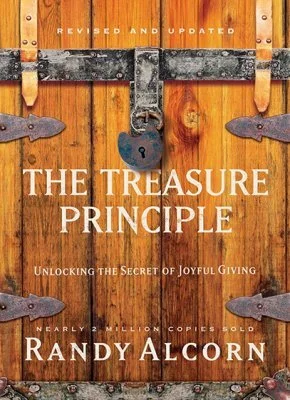If you’ve done a significant amount of painting in your home, you know the value of a good coat of primer. While it can seem tedious, it’s a step that maximizes and enhances the final coat. It’s a foundation for the intended color that defines a space.
In our frenetic western culture, approaching a significant day on the church calendar can feel a lot like a hurried paint job. Our lives are buzzing with endless activity, and by the time we’re gathered together to observe it, we feel a disintegration between our lives and what we’re gathered to celebrate. Have you sensed this before? An awareness as you sit in the pew that there’s been no time to truly reflect on what this event means until this moment? A sense of urgency to remember how it’s supposed to make a difference in your life somehow? We can all relate.
We’re distracted, with “lots of irons in the fire”, and we’re spread thin. Sometimes, we’re spread too thin to experience the fullness of what is available to us if we could slow down and spend a few intentional moments focusing on these monuments of our faith.
As we approach Good Friday and Easter this year, we’re excited to share a few resources that are designed to act as a “primer” for our hearts as we prepare to meditate on the depths of God’s love demonstrated for us in the events of Good Friday and Easter. You can reclaim a few moments here or there to lay a foundation so that, later this month, you can sense the vibrancy of all that God has invited us to celebrate. Let’s not just fly by Easter as another Sunday in April. May it redefine the space of our hearts once again.
PRIME YOUR HEART FOR EASTER: AGAPE LOVE
This year’s Good Friday and Easter services at FBC will focus in on the scriptural idea of “No Greater Love”. The Greek word for the love that motivated God to extend salvation to us is “agape”. In order to see what’s unique about this specific meaning of “love”, we found this video by the team at The Bible Project super helpful:
John MacArthur defines agape love this way:
”Agape is the love that gives. There’s no taking involved. It is completely unselfish. It seeks the highest good for another no matter what the cost, demonstrated supremely by Christ’s sacrifice on our behalf.”
Similarly, author Sam Storms offers this description:
“The preeminent expression of love is when the lover, at great personal cost, gives or imparts to the beloved the most enthralling, beautiful, and eternally satisfying experience possible. The latter, of course, would be the knowledge and enjoyment of God himself.”
This is the love of God. As His children, we find ourselves on the receiving end of a love that knows no bounds. The word “love” is such a casual term in our everyday experience; it’s good for us to be drawn back to the depth and unique richness of God’s agape love.
John Piper clarifies our concept of agape love by describing it as “love of benevolence”:
“…What I have found most helpful is to divide love into two categories. I got this first from Jonathan Edwards, but it goes way back before him. He divides love into “love of complacency” and “love of benevolence”.
Complacency would be, “I love pizza.” In other words, “I find myself pleased by the qualities I find in pizza — namely, its taste.” That would be love of complacency. Or you might love a place or a country or lots of things. You could say you love them because they are lovely. They are pleasing to you.
Whereas, the love of benevolence is not based on the loveliness of the object of the love, but rather your good will — benevolence — your good will toward the person or the thing that you are loving. Your aim in that kind of love is to do good, to bring about something beautiful, not respond to beauty.”
PERSONAL REFLECTION
With this understanding of agape love as a backdrop, let the following passages sink into your mind and heart. We’ve indicated where each passage uses the English translation of the Greek word “agape”. As you read, remind your own heart that you have been shown love in a way that’s wildly foreign to our culture. You have been shown a love that’s pure from even a hint of manipulation. A love that isn’t stained with sinful selfishness. A love that wasn’t caused by anything you did to secure it. A love that is genuinely “for you” more deeply than you can fathom, yet isn’t about you. A love that transforms you from the inside out. A love that doesn’t start with you, but that doesn’t stop with you either - flowing abundantly from the heart of God and cascading through you onto others. (Romans 5:5, 1 John 4:7-8)
John 3:16 (NIV)
“For God so loved (agapaō) the world, that he gave his only Son, that whoever believes in him should not perish but have eternal life.”
Romans 5:8 (NIV)
But God demonstrates his own love (agapē) for us in this: While we were still sinners, Christ died for us.
1 John 4:9-10 (NIV)
This is how God showed his love (agapē) among us: He sent his one and only Son into the world that we might live through him. This is love: not that we loved God, but that he loved (agapaō) us and sent his Son as an atoning sacrifice for our sins.
Galatians 2:20 (NIV)
I have been crucified with Christ and I no longer live, but Christ lives in me. The life I now live in the body, I live by faith in the Son of God, who loved (agapaō) me and gave himself for me.
Ephesians 2:4-5 (NIV)
But because of his great love (agapē) for us, God, who is rich in mercy, made us alive with Christ even when we were dead in transgressions-it is by grace you have been saved.
Ephesians 5:1-2 (NIV)
Follow God’s example, therefore, as dearly loved children and walk in the way of love, just as Christ loved (agapaō) us and gave himself up for us as a fragrant offering and sacrifice to God.
How do we respond to a love like this? Charles Wesley put it so well:
And can it be that I should gain
An int'rest in the Savior's blood?
Died He for me, who caused His pain?
For me, who Him to death pursued?
Amazing love! how can it be
That Thou, my God, should die for me?
“How can it be?”…is right. As we set our hearts to reflect on this love that has no rival, may we rest in the wonder that we are the recipients of boundless grace, and that we have been invited to freely share it with everyone we encounter today.






